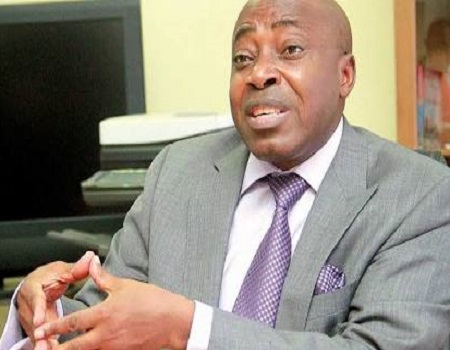CHRONIC underfunding of Nigeria’s universities, polytechnics and colleges of education, particularly the state-owned institutions, has been identified as the most fundamental factor promoting systemic corruption in the tertiary education system.
The provost, Anti-Corruption Academy of Nigeria (ACAN), Professor Olusola Akinrinade, made the remarks as part of his presentation while delivering the convocation lecture of the Olabisi Onabanjo University, Ago-Iwoye, Ogun State, on Friday.
While noting that corruption is by no means a peculiar phenomenon to Nigerian Ivory Towers, and can, as it is in other climes, be rightfully perceived as a reflection of the society, he said it is nonetheless imperative to take concrete steps to address it because of its grave implications on the integrity or character component of the certification process.
He noted: “Corruption in any form is destructive to good governance and overall welfare of society. Corruption in the education sector is even more calamitous in terms of its negative impact on society.
“When the system is corrupted, public trust in higher education is greatly undermined, quality is compromised, values are distorted and unqualified young professionals are released into the political and economic life of the society.”
Akinrinade identified, based on a research he said was conducted in 2012, some education sector-specific areas where corruption is manifested. These include admissions, enrolment and registration of courses; examination administration and award of degrees; teaching and learning services and facilities; research and research administration; appointments, promotion and discipline of staff; and departmental administration and faculty governance.
However, Akinrinade contended that chronic, unaddressed funding problem is at the heart of the corruption in the system.
Institutions that lack the required manpower and facilities, he argued, are prone to the temptation of cheating on accreditation by indulging in “what they consider necessary and in the best interest of their students, departments and of their institution” because “it is an open embarrassment that affects the public rating of institutions when their programmes and departments fail accreditation.”
ALSO READ: Supreme Court verdict: Man who trekked from Katsina to Kano received by Ganduje
As a solution, the lecturer said that institutions must, first of all, acknowledge that they have the primary responsibility for entrenching integrity in their system.
“The best way to fight corruption is internally, by implementing anti-corruption initiatives and structural reforms necessary to reduce the opportunity for corruption within the system,” he said.
Secondly, Akinrinade said that institutions should take steps towards enhancing prevention mechanisms by entrenching good governance and transparency in their academic and administrative processes.
Then, as a necessary third step, he recommended the application of sanctions and enforcement of the rule against infractions. These sanctions, he stressed, should be even-handed and could range from public exposure, naming and shaming to interdiction, suspension or dismissal from employment (for staff) and expulsion (for students) – in line with the policy guidelines regardless of status of the offender.
In all of this, Akinrinade emphasized leadership commitment to entrenching integrity in the institutional processes.
“A principal requirement in this regard is the emergence of credible individuals as chief executives of our tertiary institutions. While the documented procedures for appointing vice-chancellors, rectors, and provosts provide for transparency, it is an open fact that such procedures have been regularly subverted to permit the emergence of tin gods as chief executives of these institutions,” he noted.
Chief executives that emerge from such predetermined processes “hardly feel any need for accountability when they assume office,” he noted.
Akinrinade also enjoined government at all levels to “stop establishing universities and polytechnics as if they are establishing Day Care Centres, not mindful of operational costs and manpower requirements.”
WATCH TOP VIDEOS FROM NIGERIAN TRIBUNE TV
- Relationship Hangout: Public vs Private Proposals – Which Truly Wins in Love?
- “No” Is a Complete Sentence: Why You Should Stop Feeling Guilty
- Relationship Hangout: Friendship Talk 2025 – How to Be a Good Friend & Big Questions on Friendship
- Police Overpower Armed Robbers in Ibadan After Fierce Struggle






